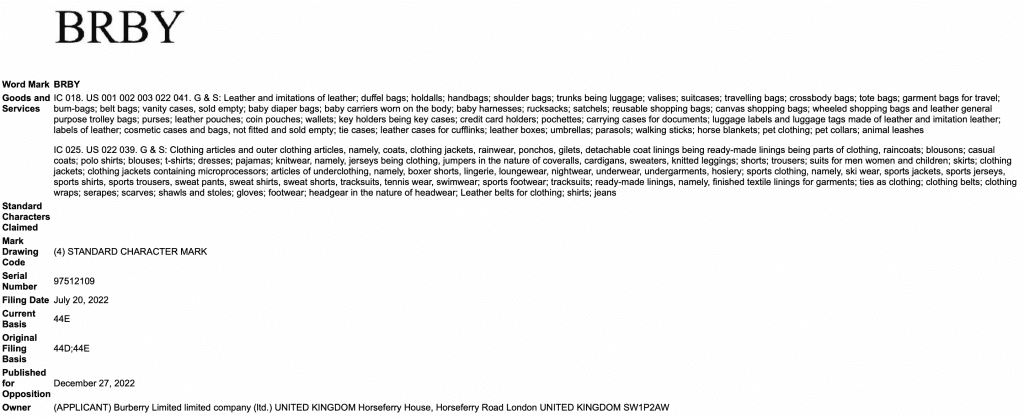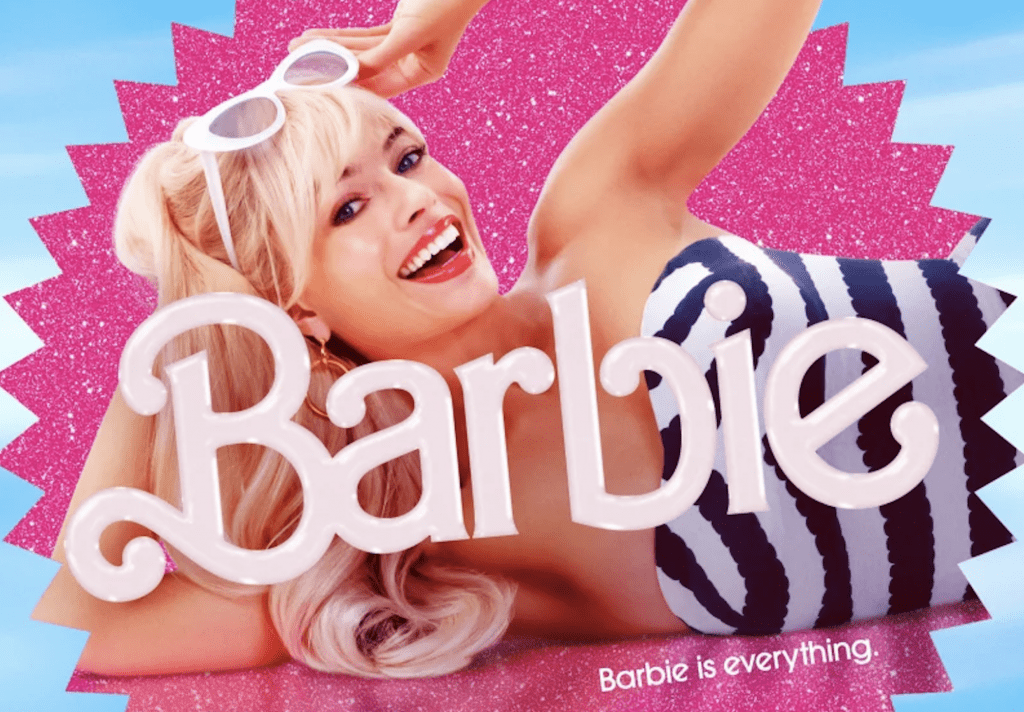Burberry and Barbie-maker Mattel appear to have settled a headline-making trademark clash that pitted them against each other over the BRBY word mark early this summer. On the heels of Mattel initiating an opposition with the U.S. Trademark Trial and Appeal Board in June, in which it sought to block Burberry’s application for registration for “BRBY” for use on apparel and leather goods, the El Segundo, California-based toy giant has withdrawn its opposition against the British fashion brand and requested that the matter be dismissed – albeit without prejudice. The apparent impetus behind Mattel’s decision to drop its opposition (as first reported by TFL): Burberry has moved to expressly abandon the trademark application at issue, suggesting that the parties have reached an agreement following a stay of the opposition this summer for settlement negotiations.
While the dust has settled on both the Barbie movie, which generated more than $1 billion in ticket sales this summer, and the Barbie v. BRBY trademark fight, Burberry has not been left entirely empty handed. The British company – which trades on the London Stock Exchange under the “BRBY” ticker – boasts at least a couple of non-U.S. registrations for the BRBY trademark that appear to still be in force. For instance, Burberry nabbed a registration from the United Kingdom Intellectual Property Office for BRBY for use on leather goods, and apparel and footwear back in April 2022. And in December 2022, the European Union Intellectual Property Office issued Burberry a registration for the BRBY mark for use on the same types of goods. Still yet, it appears to have lodged an application for the BRBY mark with the Intellectual Property Office in Korea, as well.

In furtherance of its now-settled opposition, Mattel argued that the likelihood of consumer confusion between its BARBIE trademark and BRBY is high because the two marks are “visually similar” and “when spoken aloud, are phonetically identical.” In particular, Mattel maintained that because Burberry’s mark – which the fashion brand has not yet used in the U.S., according to Mattel – “lacks any vowels to guide [the] pronunciation, it would likely be read in a manner phonetically identical to BARBIE.” In fact, Mattel claimed that the BRBY mark “could reasonably be viewed by consumers as a subset or expansion of the BARBIE® trademarks.”
Such a potential for confusion is potentially even greater due to the wide array of products that BARBIE appears on, which is, in part, the result of collaborations with third-party brands, including those in the fashion and fast-fashion spaces like Balmain and Zara. Leading up to and in the wake of the release of the Barbie movie this summer, Mattel likely lent further credence to its ability to claim confusion beyond product categories like toys and related accessories, etc. by way of more than one hundred collaborations that put the BARBIE name and its signature pink hue on products ranging from Barbie-themed pool floats and roller blades to Burger King hamburgers in certain markets.
Beyond the similarities shared by the two companies’ respective marks, themselves, Mattel asserted that the goods listed in Burberry’s trademark application for registration (namely, those in Classes 18 and 25) “directly overlap with” many of the goods/services that it uses the BARBIE trademark on. For example, Mattel “has used and uses the BARBIE® mark (and owns registrations for the BARBIE® mark) in connection with handbags, overnight bags, luggage, a broad range of clothing and apparel, footwear, and headwear – all of which are also proposed to be offered under the [BRBY] mark.” Mattel argued that due to the “strong consumer recognition” around the BARBIE brand, “long ago,” it began to grow the offerings under the BARBIE umbrella to reach “beyond toys and into various other accessories and products, including but not limited to clothing, printed journals, household goods including mugs, and entertainment services.”
As such, consumers would “likely wonder if, or assume that” goods offered up/sold under the BRBY mark “are licensed by or affiliated with [Mattel],” the company argued in furtherance of its likelihood of confusion claim.
THE BOTTOM LINE: The expansion-centric claims that Mattel makes in its opposition and its all-encompassing exercise in collaborations this summer, in particular, do not only provide a very-concrete demonstration of what the zone of natural expansion could look like for well-known brands. At the same time, they provide a framework for trademark holders that are looking to boost the reach of their marks – for revenue-generating and brand awareness-raises purposes, as well as for the purpose of better situating themselves to take on a wider array of marks by way of trademark opposition and/or infringement proceedings.














